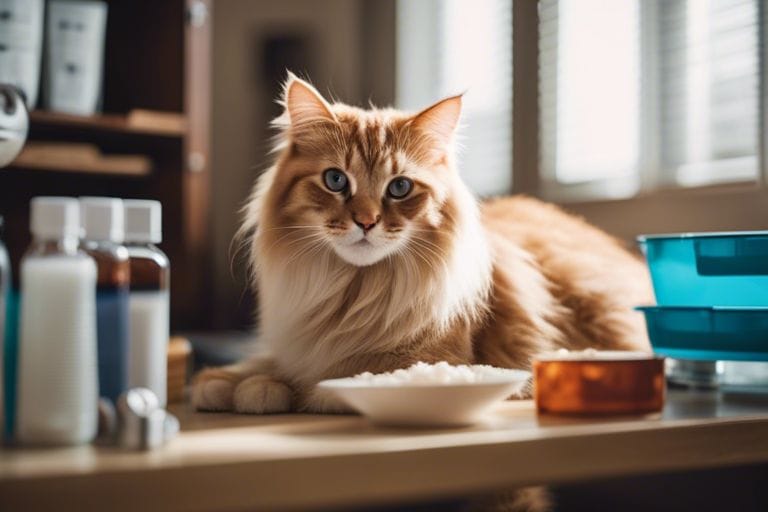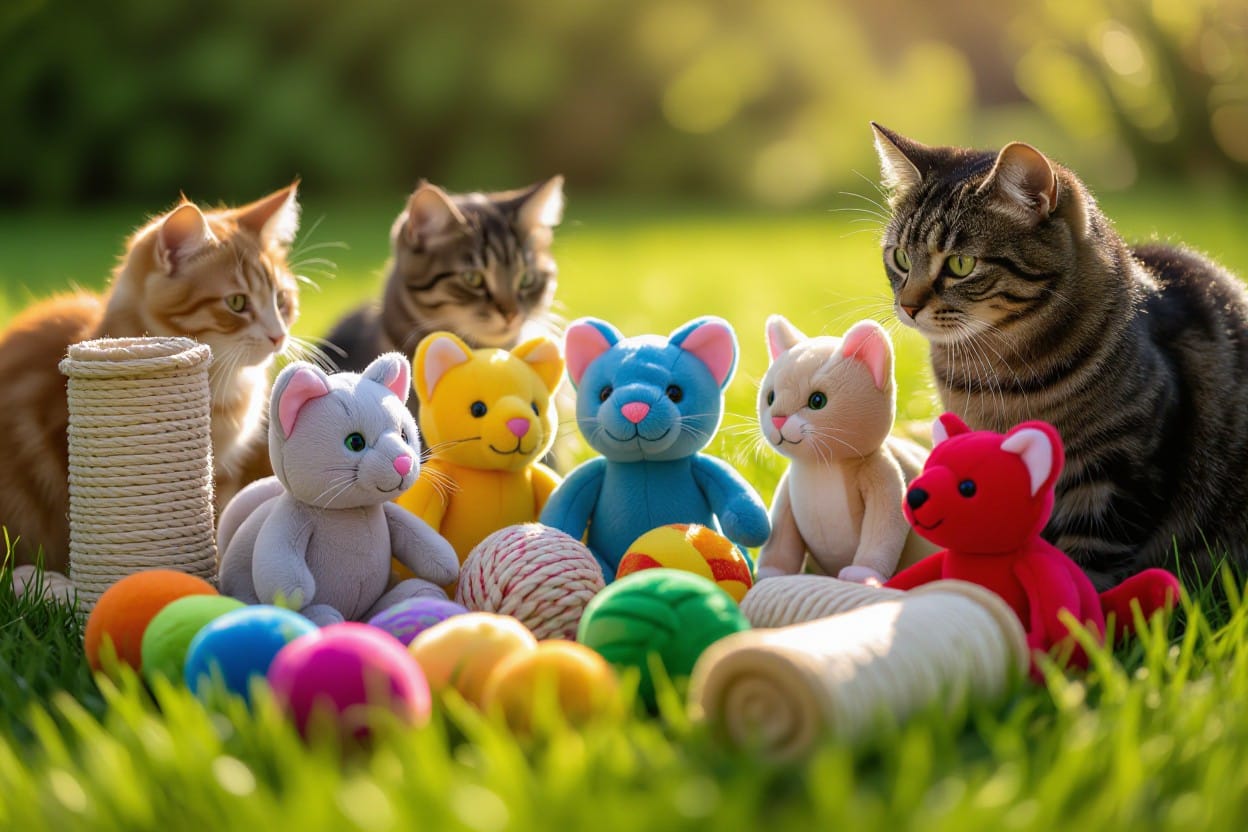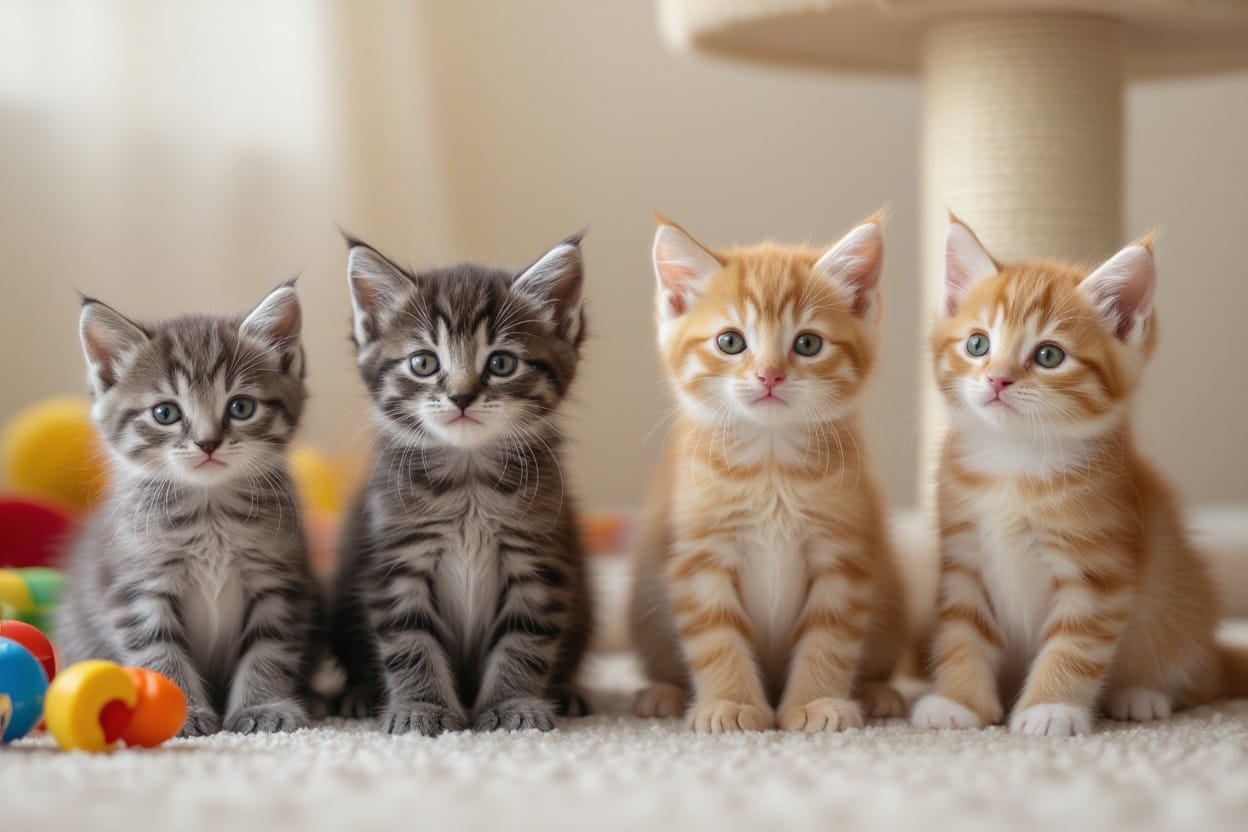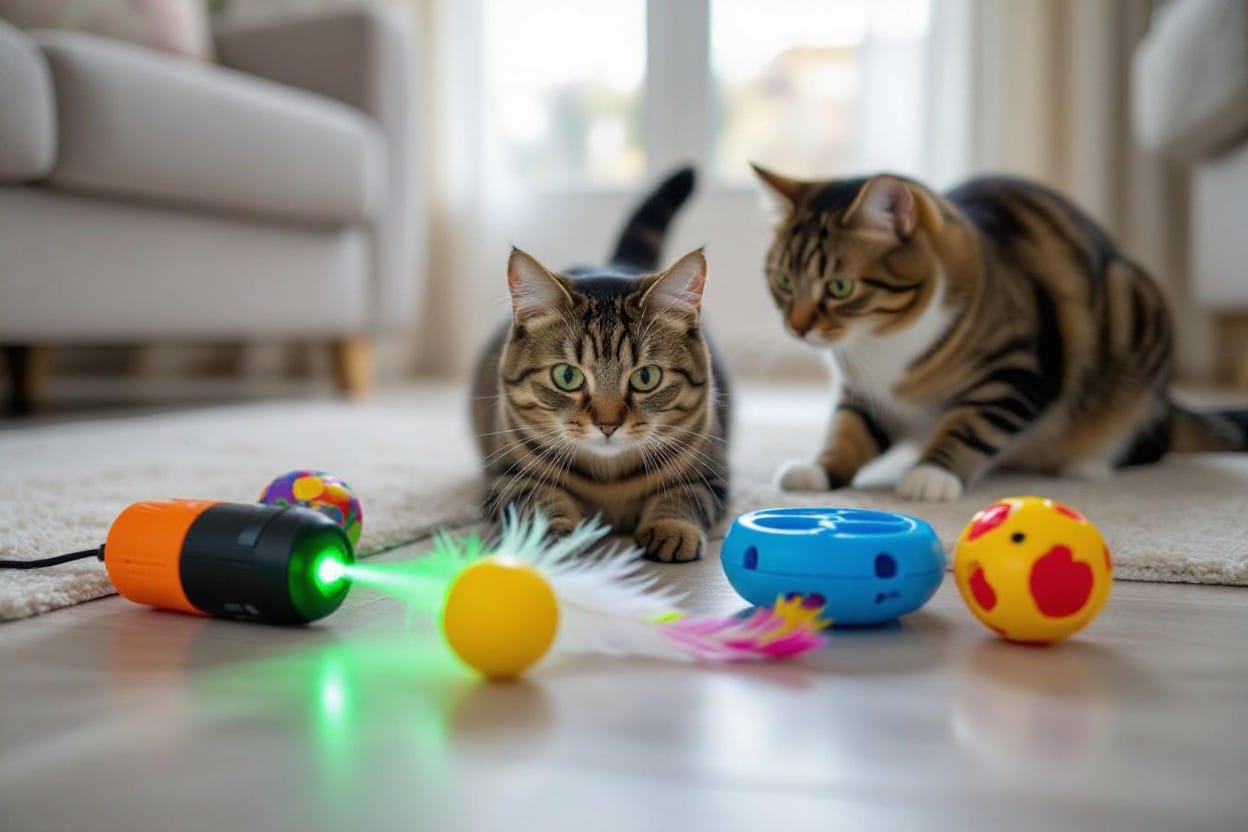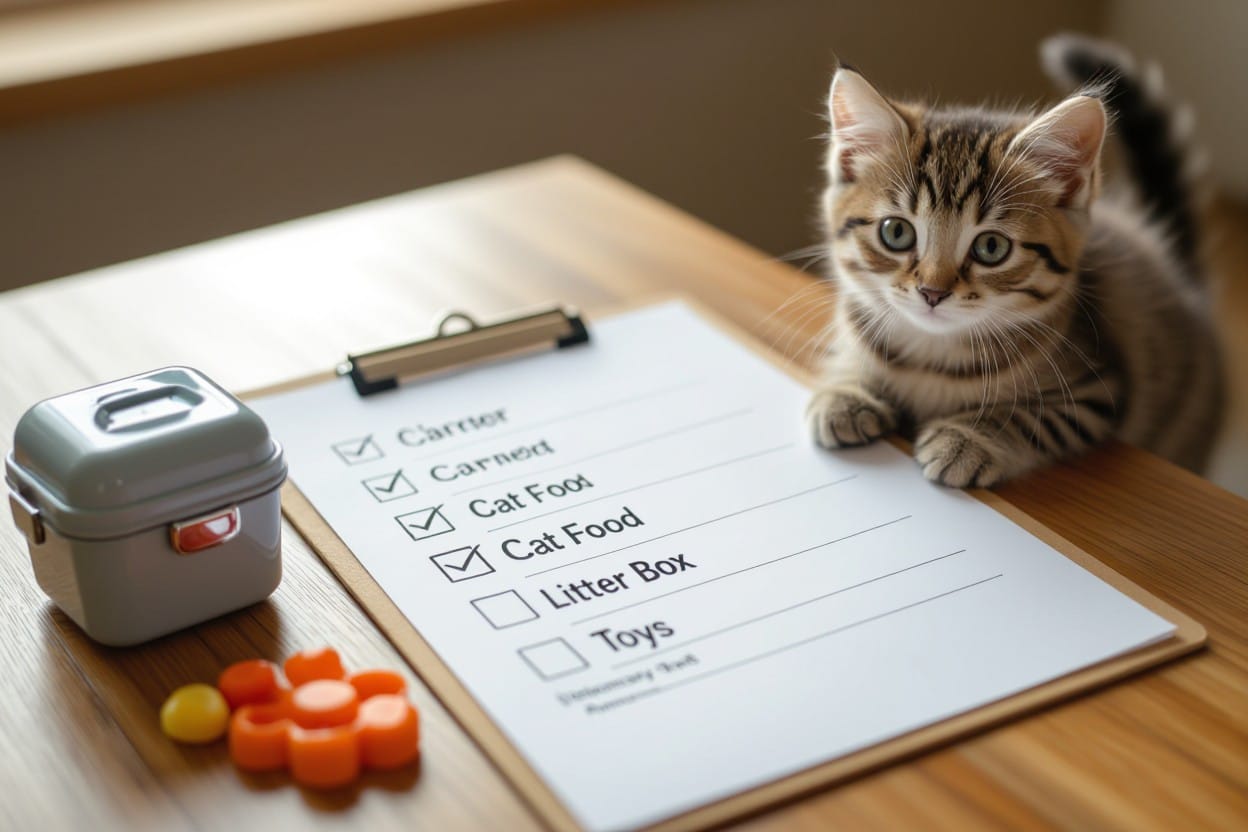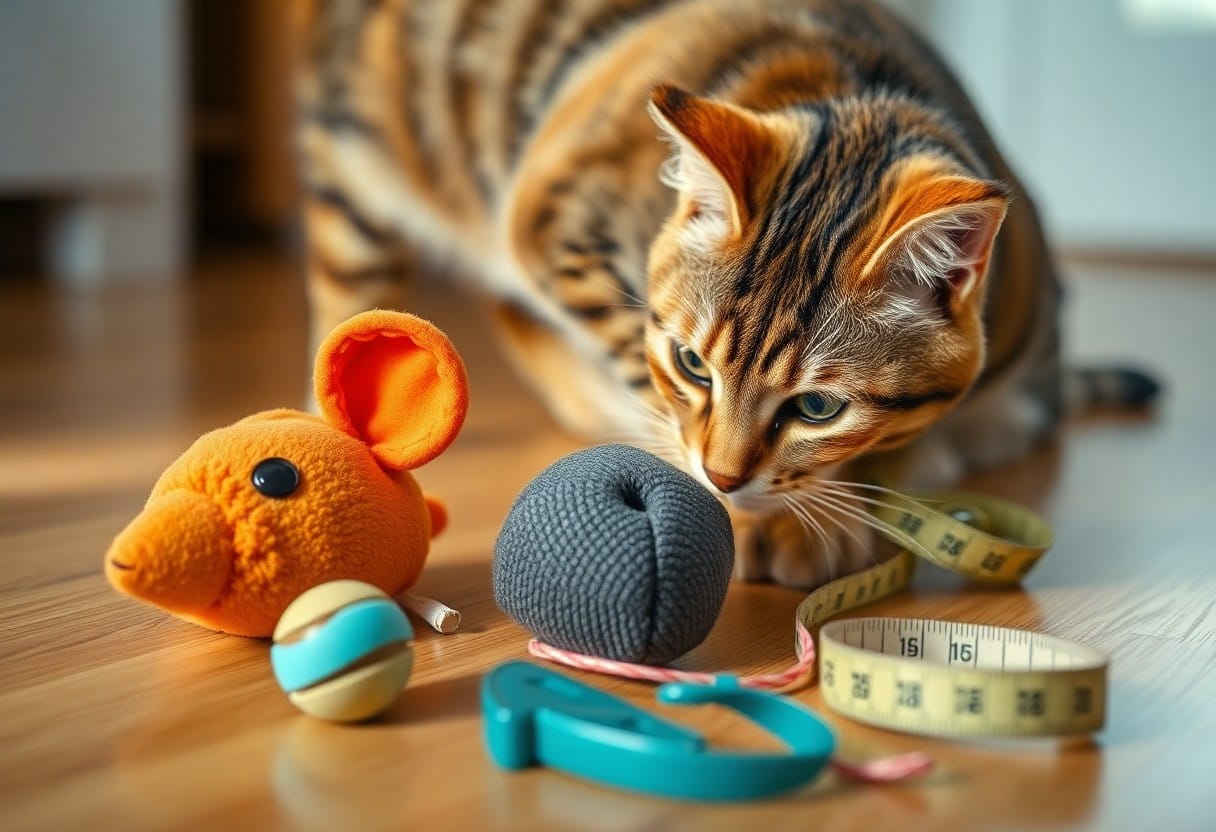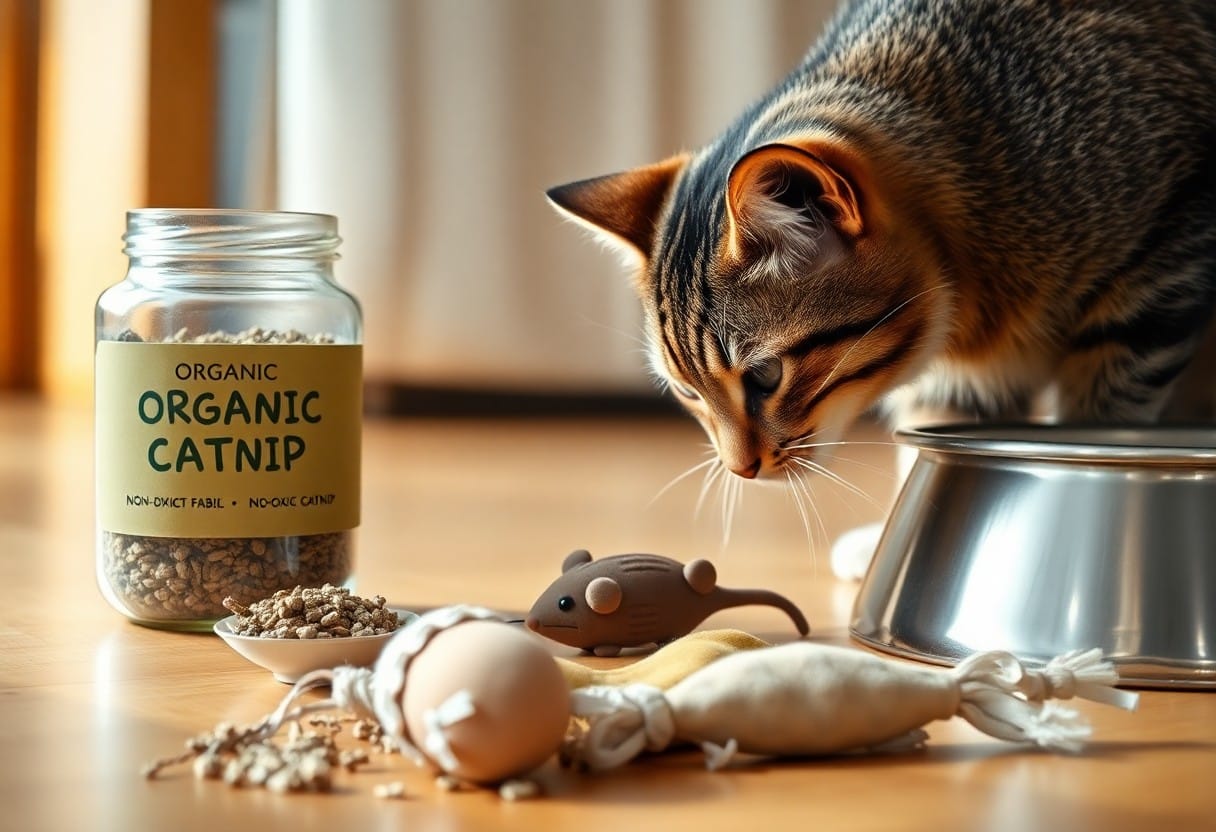This guide aims to outline some common health issues that our beloved feline companions can face and provide necessary tips on how to prevent them. As pet parents, it is crucial to be informed about potential health concerns that may arise in our fur babies and take proactive steps to ensure their well-being and longevity.
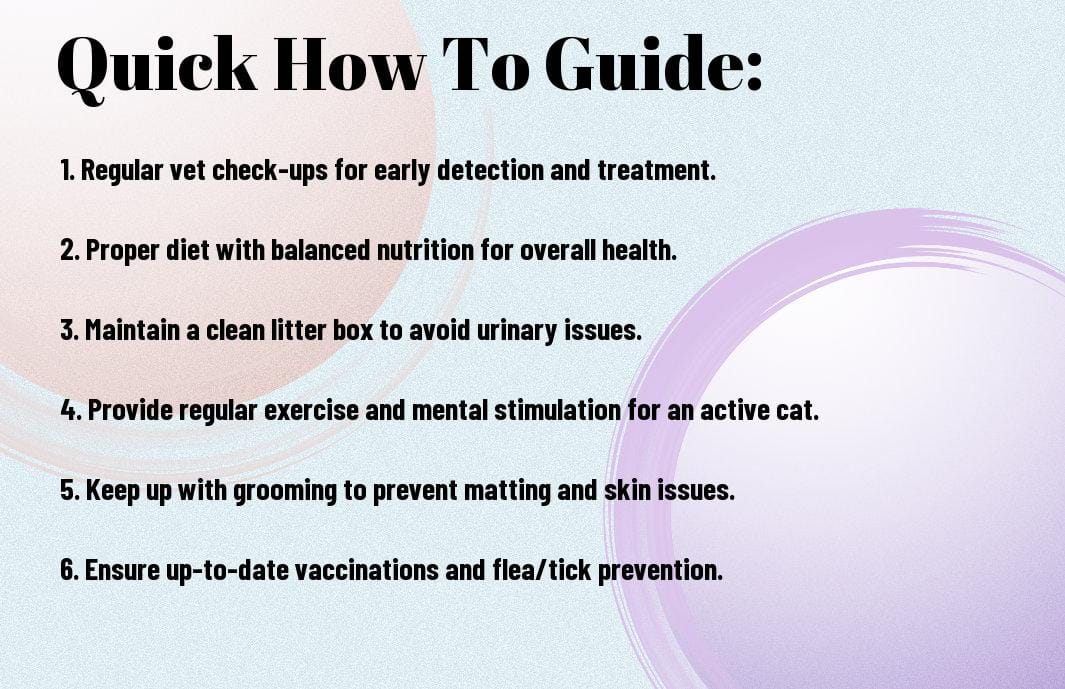

Nutritional Health: Building a Foundation
Even though cats are often perceived as picky eaters, a well-balanced diet is crucial for their overall health and well-being. Nutritional health plays a key role in preventing common feline health issues and maintaining a happy, healthy fur baby.
Essential Nutrients for Feline Well-being
While cats are obligate carnivores, meaning they have a biological need for animal-derived nutrients, their diet should consist of protein, fat, carbohydrates, vitamins, minerals, and water. Protein is imperative for muscle maintenance and overall body function, while fats provide energy and support healthy skin and coat. Carbohydrates, although not a primary nutrient for cats, can still be included in their diet in moderate amounts. Vitamins and minerals play a crucial role in supporting various bodily functions, from immune system health to bone strength. Adequate hydration through the consumption of water or wet food is vital to prevent urinary tract issues and promote healthy kidney function.
How-To Guide on Balanced Diet Planning
To ensure your feline fur baby receives adequate nutrition, start by selecting a high-quality commercial cat food that is formulated to meet the nutritional needs of cats at different life stages. Look for products that have been approved by the Association of American Feed Control Officials (AAFCO) to ensure they meet the necessary standards. Be cautious about feeding homemade diets, as they may lack imperative nutrients or be imbalanced, potentially leading to deficiencies or excesses.
Foundation
To provide a well-rounded diet for your feline companion, consider incorporating a mix of wet and dry food options to offer variety and ensure optimal nutrient intake. Consult with your veterinarian to determine the appropriate portion sizes and feeding schedule based on your cat’s age, weight, and activity level. Remember that treats should be given in moderation and not exceed 10% of your cat’s daily caloric intake to prevent nutritional imbalances.
Obesity in Cats: Causes, Consequences, and Prevention
Identifying Factors Leading to Feline Obesity
You may not realize it, but several factors can contribute to obesity in cats. One of the leading causes is overfeeding or feeding your cat high-calorie food. Lack of physical activity plays a significant role as well, especially in indoor cats who may not have enough opportunities to exercise. Additionally, certain medical conditions, such as hypothyroidism, can also lead to weight gain in cats.
- Monitor your cat’s food intake and opt for a balanced, portion-controlled diet.
- Encourage regular playtime and physical activity to keep your cat active and maintain a healthy weight.
- Consult with your veterinarian to rule out any underlying medical issues that could be causing weight gain.
Tips for Managing Weight and Ensuring Physical Activity
With obesity being a common concern among cats, it is vital to take proactive steps to manage their weight and ensure they get enough physical activity. One effective way to prevent obesity is by feeding your cat based on their individual needs and avoiding free-feeding. Additionally, incorporating interactive toys and designated play sessions can help keep your cat engaged and active.
- Limit treats and snacks to prevent unnecessary calorie intake.
- Consider using puzzle feeders or food-dispensing toys to make mealtime more engaging and promote mental stimulation.
- Regularly schedule veterinary check-ups to monitor your cat’s weight and overall health.
Prevention
To prevent obesity in cats, it is crucial to prioritize a healthy diet and regular exercise routine. By ensuring your cat maintains a healthy weight, you can reduce the risk of obesity-related health issues and promote a longer, happier life for your feline companion.
- Establish a feeding schedule and stick to recommended portion sizes to prevent overeating.
- Engage your cat in daily play sessions to encourage physical activity and mental stimulation.
- Monitor your cat’s weight regularly and adjust their diet and exercise regimen as needed.
Dental Health: Keeping the Pearly Whites Clean
Recognizing Dental Issues in Felines
Your feline friend may not be able to tell you when they are experiencing dental issues, so it’s crucial for pet owners to be observant. Keep an eye out for signs such as bad breath, swollen or bleeding gums, reluctance to eat hard food, excessive drooling, or pawing at the mouth. If you notice any of these symptoms, it’s important to take your cat to the vet for a thorough dental examination.
How-To Maintain Good Dental Hygiene for Your Cat
Your cat’s dental health is just as important as your own. To prevent dental issues, it’s crucial to establish a regular dental care routine for your furry friend. This includes brushing your cat’s teeth regularly with a pet-specific toothbrush and toothpaste, providing dental treats or toys for chewing, and scheduling annual dental check-ups with your vet. Consistent dental care can help prevent plaque buildup, tartar formation, and potential dental diseases in your beloved feline companion.
A healthy diet plays a significant role in maintaining your cat’s dental hygiene. Feeding them dry food can help keep their teeth clean by reducing plaque buildup. Additionally, providing dental treats or raw bones for chewing can help promote healthy teeth and gums. Keep in mind, a proactive approach to your cat’s dental care can lead to a lifetime of good oral health and overall well-being.
Fleas, Ticks, and Parasites: External Threats
Now, let’s talk about the common external threats that can affect our feline friends – fleas, ticks, and parasites. These pesky critters can cause discomfort, itchiness, and even transmit diseases if left untreated. Prevention and early detection are key to keeping your fur baby healthy and parasite-free.
How-To Spot Signs of Infestation
An important part of caring for your cat is being able to recognize the signs of a flea, tick, or parasite infestation. Watch out for excessive scratching, hair loss, redness or inflammation of the skin, visible bugs or eggs in the fur, and in severe cases, anemia. If you notice any of these symptoms, it’s crucial to consult your veterinarian for proper diagnosis and treatment.
Tips for Parasite Prevention and Treatment
To prevent a flea, tick, or parasite infestation, it’s imperative to keep your cat’s living environment clean and regularly groom your pet. Use flea and tick prevention products recommended by your veterinarian, such as spot-on treatments, collars, or oral medications. Additionally, have your cat regularly checked by a vet for parasites and follow their recommendations for deworming treatments.
- Regularly clean and vacuum your home to reduce the presence of fleas and ticks.
- Keep your cat away from areas where parasites are more commonly found, such as tall grass or wooded areas.
- Any outdoor activities should be supervised to minimize the risk of exposure to parasites.
A healthy and parasite-free cat is a happy cat, so make parasite prevention a priority in your feline’s care routine. By staying vigilant and following these tips, you can help protect your fur baby from external threats and keep them safe and healthy for years to come.
Common Infectious Diseases and Immunization
Feline Viral and Bacterial Diseases: An Overview
To ensure the health and well-being of your feline fur baby, it is vital to be aware of common infectious diseases that can affect them. Feline viral and bacterial diseases such as feline herpes virus, feline calicivirus, feline leukemia virus, and feline immunodeficiency virus are prevalent among cats. These diseases can weaken your cat’s immune system, making them more susceptible to other illnesses. It is crucial to be vigilant and proactive in preventing these diseases.
Immunization Schedules and How-To Keep Them Updated
Schedules for immunizations play a key role in protecting your feline companion from infectious diseases. Vaccines are available to prevent many of these diseases, and they should be administered following a recommended schedule. Keeping your cat’s vaccinations up to date is vital for maintaining their immunity and overall health. Your veterinarian can provide guidance on the appropriate immunization schedule for your cat based on their age, health status, and lifestyle.
Regular veterinary check-ups are crucial for monitoring your cat’s vaccination status and ensuring that they receive the necessary booster shots. It is important to keep a record of your cat’s immunization history and schedule appointments for any required vaccinations to keep them protected against infectious diseases. By staying proactive and following the recommended immunization schedule, you can help your feline fur baby lead a long and healthy life.
Behavioral and Mental Health: The Emotional Side of Felines
After addressing the physical health of your feline fur baby, it’s necessary to also consider their mental and emotional well-being. Cats, like humans, can experience stress, anxiety, and other behavioral issues that significantly impact their quality of life. By understanding the signs of these issues and implementing strategies to address them, you can help your furry friend lead a happier and more fulfilling life.
How-To Recognize Signs of Stress and Anxiety in Cats
Little changes in your cat’s behavior can often be a sign of stress or anxiety. Common signs include excessive grooming, changes in appetite, hiding, aggression, or eliminating outside of the litter box. Yowling, excessive meowing, or destructive behavior can also indicate that your cat is feeling overwhelmed or anxious.
Tips for Providing a Stimulating and Comfortable Environment
You can create a stimulating and comfortable environment for your feline friend by providing plenty of vertical space for climbing and perching, interactive toys for mental stimulation, and cozy hiding spots for relaxation. Additionally, establishing a routine for feeding, playtime, and grooming can help reduce stress and anxiety in your cat.
- Make sure to provide multiple scratching posts to satisfy your cat’s natural instincts and prevent destructive behavior.
- Offer a variety of toys that encourage your cat to engage in active play, such as feather wands, puzzle feeders, or laser pointers.
Recognizing and addressing your cat’s need for mental and physical stimulation is crucial for promoting their overall well-being and preventing behavioral issues.

Age-Related Health Concerns in Felines
Understanding Age-Related Changes in Cats
To ensure the well-being of our aging feline companions, it is crucial to understand the common age-related changes they may experience. As cats get older, they may encounter issues such as arthritis, dental problems, decreased kidney function, and changes in their weight. These changes can impact their quality of life and overall health, making it important to be vigilant and proactive in addressing these issues.
Regular veterinary check-ups can help in early detection of these age-related health concerns, allowing for timely intervention and management. By being aware of the potential changes that come with age in cats, pet parents can provide the necessary support and care to help their beloved feline friends age gracefully.
How-To Adapt Care for Senior Cats
For senior cats, it is imperative to adapt their care routines to ensure they remain comfortable and healthy in their later years. Providing a senior-friendly environment, with easy access to food, water, and litter boxes, can make a significant difference in their daily lives. Additionally, offering cozy and warm resting spots can help alleviate any joint stiffness or arthritis they may experience.
Regular veterinary visits become even more crucial as cats age, as they may need more frequent health assessments and screenings. Adjusting their diet to accommodate changing nutritional needs and incorporating interactive toys or gentle exercise can also help keep senior cats mentally stimulated and physically active, promoting their overall well-being.
Summing up
In the final account, there are common health issues that can affect our feline fur babies, such as dental problems, obesity, and urinary tract issues. It is crucial for cat owners to be proactive in preventing these issues by providing a balanced diet, regular exercise, and routine veterinary check-ups. By taking these preventative measures, cat owners can help ensure their furry companions live long, healthy, and happy lives.
FAQ
Q: What are common health issues in feline fur babies?
A: Cats can experience common health issues such as dental problems, urinary tract infections, obesity, and hairballs.
Q: How can dental problems be prevented in cats?
A: Dental problems in cats can be prevented by getting regular dental check-ups, feeding them dental-friendly food, and providing them with dental treats and toys.
Q: What are the signs of a urinary tract infection in cats?
A: Signs of a urinary tract infection in cats include frequent urination, straining to urinate, blood in the urine, and excessive grooming of the genital area.
Q: How can obesity be prevented in cats?
A: Obesity in cats can be prevented by feeding them a balanced diet, providing regular exercise, and avoiding overfeeding or giving too many treats.
Q: How can hairballs be prevented in cats?
A: Hairballs in cats can be prevented by regular grooming to reduce shedding, providing a high-fiber diet, and offering hairball remedies or lubricants.
